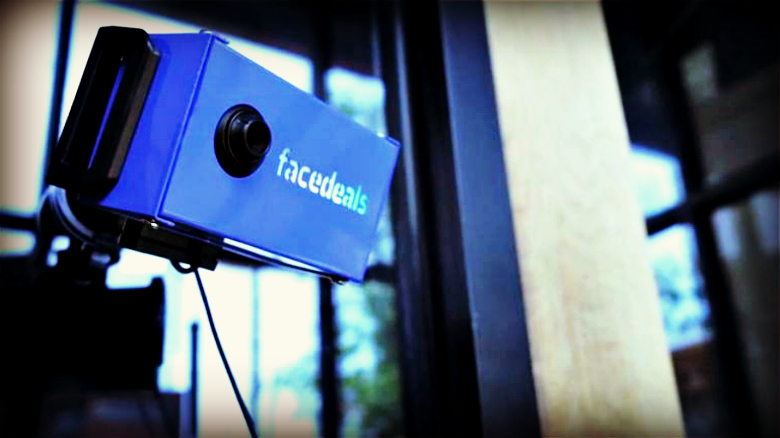
Changing technology laws
Because of the quickly changing nature of technology, appropriate and relevant laws regulating use of new technology is often behind by many years. Sometimes during the gap, the technology is abused because there are no laws restricting it. In theory, it has free reign until the government catches up and makes some guidelines. When it comes to facial recognition technology and its use in business, the FTC is doing what it can to squash potential privacy issues before they become big problems.
In August of this year, we profiled a business idea that encouraged the use of facial recognition software, also called a facial check-in, in order to reward loyal customers with coupons and discounts as soon as they walk into an establishment, all through just having a facial recognition camera at the entrance. But this idea is completely opt-in, meaning that no one’s face would be recognized unless they first gave permission. But this idea for facial recognition technology has since been used in more common forums—Facebook.
Facebook has used facial recognition for some time
If you’re a Facebook user, you may have noticed that Facebook uses this technology, too—in your uploaded photos. If there was a photo you didn’t tag and Facebook recognizes the image as a face, it will prompt you to tag someone. But it also goes one step further. Sometimes Facebook recognizes who is in the picture and suggests you tag them by name, all through facial recognition technology. Needless to say, it is a little on the creepy side when used this way. Facebook users currently have no way to opt-in or opt-out of facial detection. In the past, Facebook has said that users are naturally resistant to change, and by allowing them to opt-out of something will limit the creative process and creative advancements.
Anticipating the need for regulation, the FTC decided to create some guidelines for the use of facial recognition. Remember, these aren’t laws, merely guidelines. The most important guideline is that users must give “affirmative express consent” before their facial details and information are taken and stored. This is all to protect a person’s privacy. Another guideline is that all businesses should clearly post a sign when facial recognition software is in use. This essentially allows the masses to opt-out by not going into the store or business. The third guideline is that anyone whose face and information were stored should have the right to have all photos and information of them deleted in their entirety.
The FTC’s new report
In the 21-page report, the FTC details a few possible negative situations involving the expansion and accessibility of facial recognition software. The FTC projected that one day there might be an app that will identify every person walking down the street, based on their social networking usage and their patronage to businesses that use this technology. A man could take a picture of a woman walking down the street—without her even knowing it—and he could possibly find out her name, age, or even her address. This type of situation is obviously one of the FTC’s biggest fears—the abuse of this new technology and how it will affect the privacy and safety of the public.
Facial recognition technology is still in its infancy. And chances are we’re going to hear a lot more about it in the coming months and years. Companies that don’t allow their patrons or users to opt-in or out potentially put them at risk. And for those who prefer to maintain a distinction between their online lives and their personal lives, this technology can be worrisome. If all companies followed the new guidelines set up by the FTC, most would feel a little more comfortable with facial recognition advancements.
The American Genius Staff Writer: Charlene Jimenez earned her Master's Degree in Arts and Culture with a Creative Writing concentration from the University of Denver after earning her Bachelor's Degree in English from Brigham Young University in Idaho. Jimenez's column is dedicated to business and technology tips, trends and best practices for entrepreneurs and small business professionals.










































